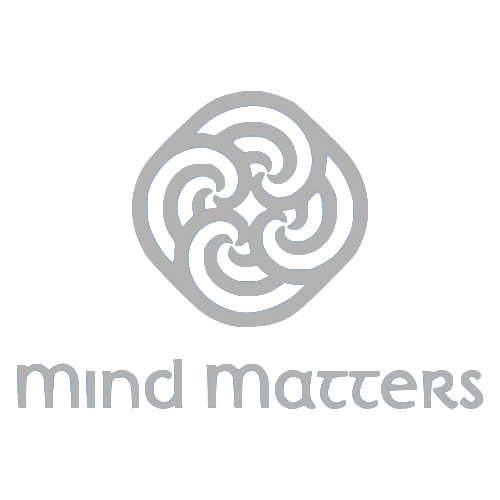Hypnosis for sleep
Unleashing the Power of the Mind for Restful Nights

Conquer Insomnia Through Online Hypnotherapy.
Are you grappling with sleep issues that are impacting both your physical and emotional well-being? You’re not alone. Insomnia can pose significant challenges in your day-to-day life, affecting your mood, energy levels, and ability to concentrate. Despite trying various sleep aids and altering habits, many still struggle to achieve restful sleep. If you feel like you’re in need of a fresh approach to address the root cause of your insomnia, consider exploring hypnosis for sleep. I can help you change the way you sleep so that you wake up feeling refreshed and energised.
Are you facing challenges with insomnia?
- Unable to fall asleep despite feeling tired?
- Experiencing frequent awakenings during the night?
- Finding it difficult to return to sleep after waking up?
- Waking up prematurely in the morning?
- Depending on alcohol or sleeping pills to induce sleep?
- Feeling drowsy, fatigued, or irritable during the day?
- Struggling with concentration issues at work?
Whether you struggle with falling asleep, frequent awakenings, or difficulty achieving deep sleep, hypnosis can be a valuable tool in alleviating your symptoms. Instead of merely masking the issue, hypnotherapy aims to identify and correct the underlying causes of your sleeplessness. Through a combination of hypnotherapy, Neuro-Linguistic Programming (NLP), and coaching techniques, I can assist you in resolving these underlying issues, making sleep a natural, deep, and effortless process.
Discover how insomnia hypnotherapy can assist you:
- Target and alleviate underlying stress or anxiety factors
- Rectify unhealthy sleep routines
- Transform your perception of sleep
- Challenge and modify negative thought patterns
- Reconnect with your natural ability to sleep

Julian Carbajo
Are you ready to embark on a journey of self-discovery and transformation? My name is Julian, and I am not just a clinical hypnotherapist and life coach – I am your dedicated partner in achieving your goals and unlocking your fullest potential.
Ready to take the first step towards a happier, more fulfilling life? Contact me today to schedule a consultation and discover how tailored hypnotherapy and coaching solutions can unlock positive change in your life. Your journey towards personal growth and transformation begins with a simple message – reach out to me, and let’s embark on this empowering journey together.
Sleep is a fundamental aspect of our well-being, yet for many, it remains elusive. Sleep disorders and poor sleep quality affect millions of people worldwide, leading to a host of physical and mental health issues. While traditional treatments like medication and therapy exist, an emerging alternative that has shown great promise is hypnosis for sleep.
We’ll delve into the world of hypnosis and how it can be a valuable tool in achieving restful and rejuvenating sleep.
Understanding hypnotherapy for sleep
Hypnotherapy for sleep is a technique that uses the power of imagination and memory to gain control over your unconscious mind to help people fall asleep. It is not a form of mind control, and it is not sleep.
It is not a state of unconsciousness or a loss of control. Instead, during hypnosis, the individual enters a trance-like state where they are able to tap into the power of their unconscious mind.
Is hypnosis effective for insomnia?
While scientific research on hypnosis for sleep is ongoing, some studies have shown promising results. A 2014 study published in the journal Sleep, found that hypnosis improved the sleep quality of participants with insomnia. Hypnosis was effective for reducing the time it took people to fall asleep and for improving sleep quality.
Another study, published in the journal “International Journal of Clinical and Experimental Hypnosis”, found that hypnosis was effective for treating insomnia in children.
While more research is needed, these findings suggest that hypnosis can be a valuable tool in the management of sleep disorders.
Tips for getting the most out of hypnotherapy for sleep

• Be open to the process. Hypnosis can be a powerful tool, but it only works if you are willing to participate.
• Set clear goals. Before starting hypnotherapy, define your sleep-related goals and communicate them to your hypnotherapist. Whether you want to improve sleep quality, overcome insomnia, or address specific sleep disorders, clear goals will help your therapist tailor the sessions to your needs.
• Be honest with your hypnotherapist. The hypnotherapist needs to know what is going on in your life in order to help you. It’s important to be aware about your sleep patterns, behaviours, and any underlying emotional or psychological factors that may be contributing to your sleep issues.
• Understand the process. Ask your hypnotherapist to explain the process of hypnotherapy and what you can expect during sessions. Understanding the process can help alleviate any fears or concerns you may have.
• Manage stress and anxiety. Hypnotherapy can help address underlying emotional factors contributing to sleep issues.
• Commit to regular sessions. Hypnotherapy for sleep is often most effective when done over a series of sessions. Make a commitment to attend all scheduled sessions and follow your therapist’s recommendations for session frequency.
• Be patient. It takes time to learn how to control your sleep. Don’t get discouraged if you don’t see results immediately.
examples of how hypnotherapy can be used to improve sleep
• The hypnotherapist can help you visualize a calming and relaxing scene. This can help you to learn how to relax and fall asleep.
• The hypnotherapist can suggest positive thoughts and beliefs that the person can repeat to themselves when they are feeling anxious or stressed. This can help to reduce stress and promote sleep.
• The hypnotherapist can help the person to develop a bedtime routine that promotes relaxation and sleep.
For those interested in using hypnotherapy for sleep, it’s essential to consult a trained and certified hypnotherapist. Working with a professional ensures that the process is conducted safely and effectively.
Benefits of Hypnosis for sleep

1. Natural and Non-Invasive: Hypnosis is a non-invasive, drug-free approach to improving sleep quality, making it a suitable option for those who want to avoid medications.
2. Holistic Approach: It addresses the psychological and emotional aspects of sleep, aiming to tackle the root causes of sleep disturbances.
3. Customization: Hypnosis for sleep can be tailored to individual needs and concerns, making it a highly personalized treatment.
4. Improved Sleep Patterns: Many individuals who undergo hypnosis for sleep report falling asleep more quickly, experiencing fewer nighttime awakenings, and enjoying a deeper, more restorative sleep.
5. Stress Reduction: Hypnosis helps individuals relax, reducing stress and anxiety, which are common contributors to sleep problems by addressing underlying causes.
FAQs about Hypnosis for sleep
How does hypnosis aid in combating insomnia and promoting better sleep?
Is Hypnosis A Reliable Solution For Addressing Sleep Problems?
Can Hypnosis Be Conducted Remotely For Improving Sleep?
Is Hypnosis Safe For Improving Sleep?
How Many Hypnosis Sessions Are Typically Needed To Observe Improvements In Sleep Patterns?
Conclusion
Sleep is a cornerstone of health and well-being, and the power of the mind plays a significant role in achieving restful nights. Hypnosis for sleep offers a natural and holistic approach to address sleep-related issues, helping individuals overcome insomnia and sleep disturbances. While it may not be a one-size-fits-all solution, hypnosis can be a valuable tool in the quest for rejuvenating and restorative sleep. If you’re struggling with sleep, consider exploring the benefits of hypnosis and working with a qualified hypnotherapist to unlock the potential of your mind for better sleep and overall health.
